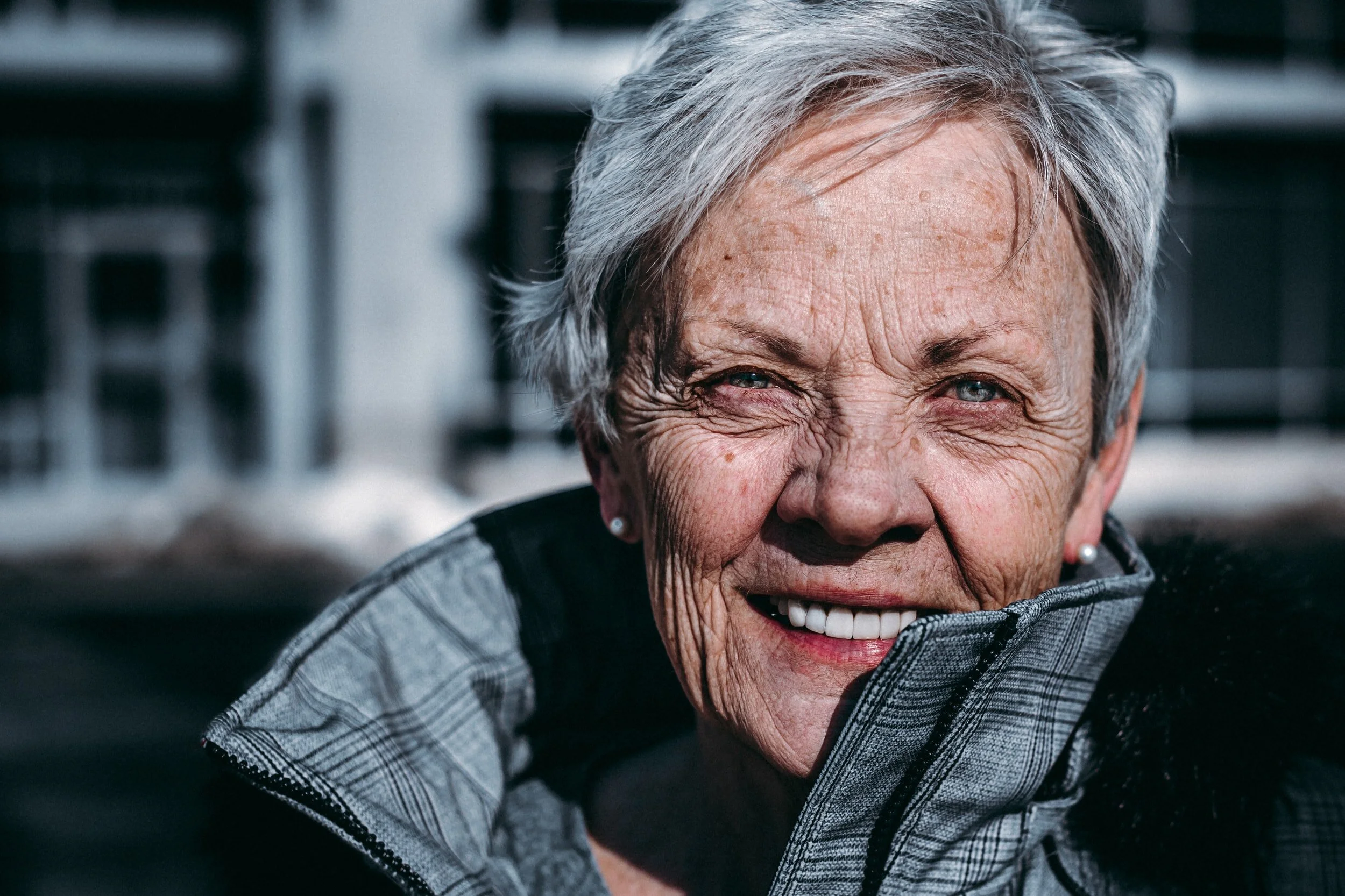The Topic of Aging Comes to Market
How we define aging helps us age better (as well as have compassion for others who are aging).
Compared to previous generations health care and medicine are better at elongating our lives. We have better education and awareness about preventative care including regular exercise and diet. We’re working longer at our careers and we engage in more vibrant lifestyle choices. Business is noticing this, and with a rate of approximately 10,000 Baby Boomers turning 65 each day, marketers are perking up their ears too.
Not that any of us need a reason to have marketers target us any more closely than they already do, however, we have to remember that in the digital age, marketing is blended into the content that drives awareness. So, if we want the right message to inform the topic of aging we first need to drop the outdated ideas.
On one hand we don’t want to over-infantilize the aged by promoting 99-year-olds who have tattoos, wear tight clothing, high heels/biker boots and hang out at bars with Instagram celebrities. On the other hand, the concept of aging doesn’t need to suggest a future specter of declining health and diminished lifestyle.
What is aging? Is the term anti-aging an appropriate word to describe the resistance of it? The magazine Allure has announced that it will no longer use the term anti-aging. To support it, celebrities offered some really beautiful quotes about their own experience with the aging process.
Aging doesn’t need to be an activity we resist, rather, it‘s a situation we need to embrace and support. It is change based on the passage of time and according to many, opens up a welcome, deeper sense of experience.
While it’s true that aging brings a new set of physical conditions to the body and mind, as Isabella Rossalini says in a recent InStyle article;
“At 66, my approach to aging is… To embrace it. I never feel like, “Oh, I wish I were 35.” When you’re young, you have the pressure to earn money, prove yourself. I had to be a beauty, an actress, and do the red carpet. The fact that I was interested in animals or running a farm had no value. So, age has given me time to do all the things I’ve always wanted to do. I feel richer in a way. OK, the neck I don’t love! And I’ve certainly lost agility. I can’t do somersaults anymore, but it’s all right.”
It’s also true that many agers report feeling better about themselves in advanced age than they did when they were younger; the pressure is off and more wisdom is gained.
A 20-year longitudinal study found that negative mood and depressive symptoms decreased significantly as women transition from mid-life (ages 50 to 64) to later life (65 and older). For many women, this appears to be related to the positivity around more “me” time as they wind down from full-time work and family responsibilities.
Being happy while you age is referred to as the aging paradox – the idea that while certain things decline, happiness increases. It seems the face of aging has many sides.
So the question is; do we need commerce to validate and steer the aging process by commoditizing it? Or is the societal idea of aging in general getting a much-needed face-lift thanks to social media and marketing?
The bottom line is that it should be like the golden rule; treat others the way you wish to be treated.
Let’s respect the aging process. It’s coming for us all. And while there are many things that set individuals apart, the one thing we can all count on is that we all age and that we may not always like the way it plays out. However, if we have the right mindset, the right dialogue around it and the right support, aging can be a very enlivened experience.
Broad Street is widely considered the best home care agency in Chicago, the North Shore and the Western Suburbs. If you are ready to talk about home care services, we would be happy to listen and offer our expertise. Contact Broad Street today.

